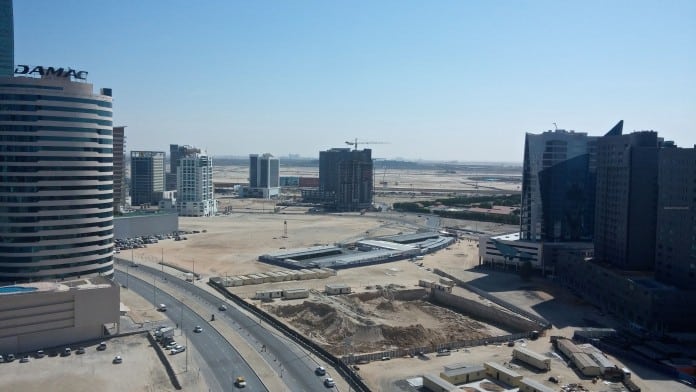
Today, Phidar Advisory released its Q4 end-quarter Dubai residential research note. The report shows that residential prices dropped in the fourth quarter of 2015, compared to the previous quarter, and declined through the past year. The report also addresses the recent controversy around supply projections.
“Recent comments from the market highlight the importance of understanding the methodology behind the data,” said Jesse Downs, Managing Director of Phidar Advisory. “This is a positive development, stakeholders should be asking these questions,” she added.
According to Phidar, in 2015 14,300 homes were completed in master planned communities and an estimated total of 18,600 new homes were completed across the city. Based only on supply pipeline estimates, the 5 year supply pipeline grows at 3.6% compound annual growth rate (CAGR) whereas the demand grows at a robust 6.5% CAGR, largely due to jobs created by the development and running of the Expo 2020 project, which should start to ramp up in 2018. However, when announced and launched projects are included the 5-year supply CAGR jumps to 5.7%-7.0%.
“We monitor construction sites across the city to assess the supply pipeline, but also include a modest growth rate for areas outside of investment zones and master planned projects,” said Ms. Downs. “This creates a more realistic estimate of total supply growth in Dubai,” she added.
In 2015, apartment lease rates decreased a nominal -1.9%, while sale prices decreased -12.7%, pushing gross yields up to 7.7%, an annual gain of 70 basis points. Lease rates for single family homes, also referred to as villas, decreased 5.5% and sale prices decreased -14.8%, which pushed yields up to 5.1%, a gain of 50 basis point in 2015.
Now, in addition to gross yields, Phidar is publishing net yields associated with the projects included in the House Price Index: Dubai 9/5. Average net yields are 6.7% for apartments and 5.1% for single family homes.
Compared to 2014, Phidar’s Dubai Real Estate International Demand Index (REIDI) dropped 83% by the end of 2015, primarily driven by exchange rate fluctuations. Phidar’s Dubai REIDI is not a measure of actual capital flows, but a real time indicator intended to assess the propensity for attracting capital inflows into Dubai real estate. It is a composite index of GDP and foreign currency z-scores for 22 countries.
“Global economic dynamics are tightening liquidity, increasing capital costs, and slowing growth in the region. These trends could continue for two years,” said. Ms. Downs “Improving transparency can help bring down market risk, which is critical in the current environment,” concluded Ms. Downs.























![The Square at Nad Al Sheba Gardens Now Open hope tax season treated you well! Just checking in—ready to refocus on growing your business? I remember how we discussed scaling your [specific aspect of their business, e.g., online presence] but paused due to time constraints. We now offer a streamlined 6-month plan that delivers real results without adding to your workload. Let me know if you'd like to chat—I’d love to help you pick up where we left off!](https://www.dubaichronicle.com/wp-content/uploads/2024/11/The-Square-5-218x150.jpg)









The total number of units to be released in 2015 and 2016 are an exaggerated figure as rental demands have not shown any significant decline.